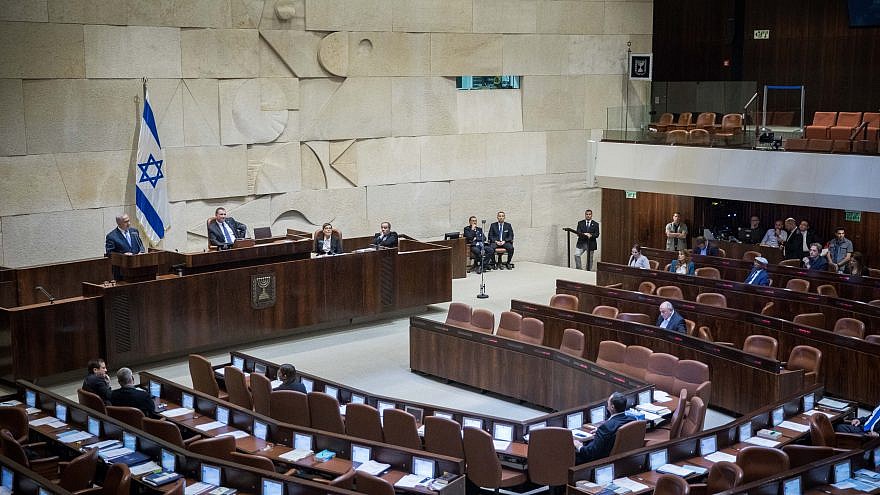Arab nations historically feared that Israel’s presence would influence their cultures, but as of Thursday, May 30, Arab traditions influenced Israel: Our prime ally in the Middle East will exist for nearly four months without a functioning democracy.
The Knesset, Israel’s Parliament, failed to form a majority ruling coalition, and then passed a bill to dissolve Parliament and hold new elections on Sept. 17, tentatively – more than five months after Israel held its latest election for the 120 Knesset positions.
This means that an unelected government will be running Israel until, hopefully, a new coalition evolves after Sept. 17, and there is no guarantee for that to happen.
Practically speaking, this episode will probably have little if any impact on the Israeli people, the Palestinians or anyone else in the world. Israel will be governed by the same officials who have been running it, and the April 9 election favored yet another right-wing government whose policies threaten to be more onerous than the current set-up.
However, the potential for chaos is immense. The idea of democratic government is to provide a stable operation to protect and serve its citizens. Failure to transfer power from one elected government to another is nothing less than a massive breakdown in the system.
Add to this mess a 10-day gap after the election for the High Holidays that run from the evening of Sept. 28 to Oct. 8.
It is upsetting enough to witness other democracies become so divided and gridlocked, but even America and Britain can claim to operate functioning democracies.
How long will this persist? What if no party can form a ruling coalition of more than 60 Knesset members after Sept. 17? Another election? And then another?
Arab countries consist of few or no democracies. Even countries with parliaments can still be overruled by their king or the ayatollahs.
Anyone who viewed “Lawrence of Arabia” might recall a climactic scene where the Arabic tribes are assigned distinct tasks after they seize Damascus at the end of World War I and they cannot seem to do anything right. Everyone blames the other for mistakes. That should not surprise observers of the Middle East.
Israel was a functioning democracy until last Thursday, and what happened that morning should disappoint us all. American taxpayers support Israel with our taxes, the vast majority of office holders we elect and the appointed diplomats who spend long hours aiding Israel in seeking peace. Jews in America also contribute money to their local Federations and other pro-Israel groups, and many of us put themselves out there on the protest line to defend Israel.
Israel’s leadership owes us, well, a stable elected leadership. How can we help Israel if its government is in a state of chaos? Their political system needed a do-over long ago, and the current situation proves it. The parliamentary system as practiced in Israel sets itself up for failure.
The same can be said for many other democracies, which is another story.
A modest proposal: When the Knesset cannot form a coalition of parties with similar ideologies, then automatically the two or more parties which collectively comprise the majority of seats will join together in a power-sharing arrangement.
In this situation, the Likud and Blue and White parties (right-wing and centrist, respectively) would have formed a coalition under such a rule. Each party won 35 seats, though Likud expected to join with smaller right-wing parties.
Nothing new there. Labour and Likud formed power-sharing coalitions in the past.
Under this rule, a power-sharing government would offer moderates and liberals direct influence in government decision-making. Blue and White could not have refused the arrangement, as it did on grounds that Benjamin Netanyahu – still the prime minister after Thursday? – is under indictment, according to The New York Times.
The Israeli population has moved to the right after nearly two decades for a series of reasons, but currently moderate and liberal Israelis comprise a very large plurality – reasonably close to a majority, if the vote in each election is any indication.
Or, any smaller party that disrupts the process – as happened in this case – will lose its leverage. Netanyahu would not have been extorted by Avigdor Lieberman, leader of the ultranationalist party Yisrael Beiteinu and all five of its Knesset members. Lieberman rejected any compromise with religious parties on a law to end the wholesale exemption of ultra-Orthodox men from the military draft.
Under this rule, Lieberman could not have stuck to his guns without permitting the formation of a more moderate government, and his party’s influence might have been sidelined.
Perhaps someone can conceive of a better solution. They better do something to prevent such a political crisis from recurring.
Republished from San Diego Jewish World.


























